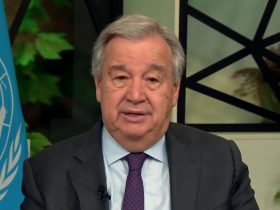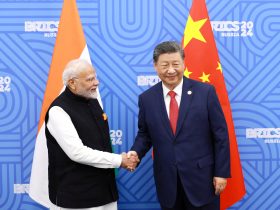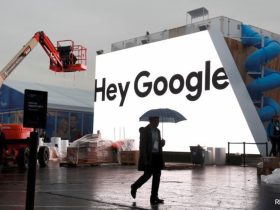
Baku:
As world leaders meet on the 2024 UN local weather convention (COP29) in Azerbaijan, a brand new report by a global growth company on Thursday stated individuals residing in 10 most climate-vulnerable nations obtained lower than $1 a yr in local weather finance.
It warned world leaders should cease “chasing shadows” with makes an attempt to make up for inadequate and poor-quality public finance with non-public contributions. The New Collective Quantified Objective (NCQG), the framework for mobilising finance to speed up local weather motion in lower-income nations, is because of dominate the discussions amongst world leaders, incomes COP29 its “Finance COP” title.
World leaders can be anticipated to switch the earlier goal agreed in Copenhagen in 2009 of $100 billion per yr by 2020, which developed nations solely met late within the type of loans reasonably than grants.
Christian Assist says a brand new strategy is required to “rebuild belief and credibility.”
The charity’s new report, ‘Placing our cash the place our mouth is: why we’d like public local weather finance’, concludes the idea that the brand new finance purpose will successfully be met by non-public finance is at odds with the proof.
In line with the report, a lot decrease quantities of personal local weather finance flowed between nations than had been hoped or anticipated.
Below three per cent of all local weather finance (worldwide and home) went to low-income nations in 2022, the newest yr for which information is accessible.
The information additionally exhibits the ten nations most affected by local weather change between 2000 and 2019 obtained simply $23bn, lower than two per cent of all local weather finance, regardless of accounting for 9 per cent of the world’s inhabitants.
The 750 million individuals now residing in these climate-vulnerable nations would have obtained on common lower than $1 every a yr from wealthy nations.
Christian Assist is urging richer nations to pay their fair proportion of public, grant primarily based local weather finance to growing nations via progressive worldwide taxes on main polluters, not least fossil gasoline corporations.
Mariana Paoli, World Advocacy Lead at Christian Assist, stated: “The local weather disaster is disproportionately affecting the world’s poorest and most susceptible communities, who contribute the least to its causes. These communities bear the brunt of climate-related disasters regardless of having by far the least capability to adapt.
“If COP29 goes to dwell as much as its ‘Finance COP’ title, world leaders should cease chasing shadows with makes an attempt to make up for inadequate and poor-quality public finance with non-public contributions. We can not proceed the failures of the previous; we should rebuild belief and credibility.
“The proof is obvious. Non-public finance, predicated on revenue, does not attain poorer and local weather susceptible communities. Simply 0.5 per cent non-public finance goes to adaptation, a drop within the ocean. When $270 bn is spent on fossil gasoline subsidies, seven instances what’s spent on adaptation, it is a merciless joke.
“To fulfill the dimensions of the local weather finance wanted, and to keep away from exacerbating the debt-crisis, we’d like extra public finance via grants. Christian Assist is subsequently calling for extra progressive taxes on main polluters, not least fossil gasoline corporations. It may be accomplished nevertheless it requires the political will.”
Janine Felson, Ambassador of Belize to the United Nations, added: “The local weather injustices are obtrusive. Belize and different susceptible nations face outsized local weather impacts with restricted assist, regardless of contributing minimally to the disaster. Who ought to bear the price? Each regulation and ethics demand that polluters, not victims, pay. But Belize’s expertise exhibits that climate-vulnerable nations are left to shoulder the prices. On the upcoming summit in Baku, leaders should tackle this injustice.”







